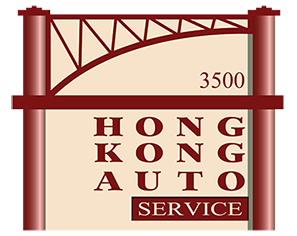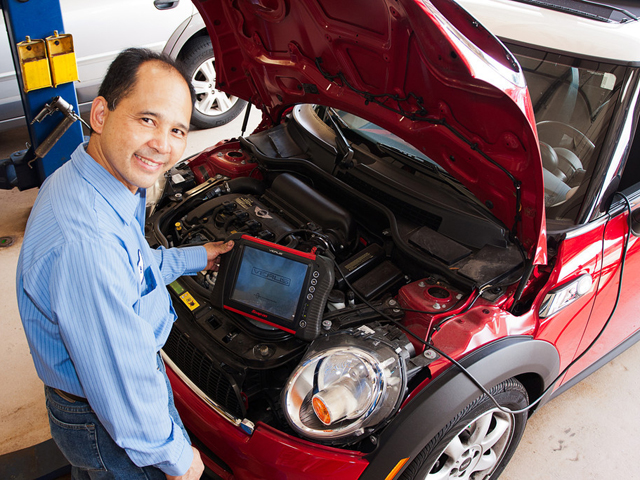Phone estimates rarely ring true
Remember the old Phone First ad campaign? Its spirited little jingle implored people not to waste time and gas visiting stores that were closed or out of a certain item, but to get on the horn instead.
That logic works OK for checking on inventory or asking about operating hours, but not so great for car-repair estimates.
Here’s why. Suppose you’re suffering from recurrent backaches. Would you immediately self-diagnose a disc replacement, then begin calling various surgeons to get a back-surgery price? Not likely. Instead, you’d visit your family physician, who would make a determination as to the cause and proper treatment. If a specialist did recommend surgery, you certainly would seek a second opinion before even considering an invasive procedure, right? The same reasoning works for automotive repairs.
A clunk in the trunk while going over a bump might be caused by something totally different than you suspect. Just like with that back issue, devising your own diagnosis and phoning around for estimates isn’t the best course of action for several reasons:
- An inspection is vital for knowing what’s really wrong. The remedy for a power loss isn’t necessarily a new transmission. An exhaust clog or catalytic converter problem might be the issue, which carries a price difference of thousands of dollars. A few minutes spent in the shop for a test drive or inspection can save you money and aggravation.
- If your vehicle was checked out somewhere else, that other shop might have misdiagnosed the problem or provided inaccurate advice. That means you’re getting information about an unneeded repair, and the fix you do require might involve a drastically different scope and price. Like with medical matters, it’s often best to get a second opinion—particularly where money is concerned. Auto-repair shops don’t all offer identical quality, and there’s no substitute for years of experience and expertise.
- Repair cost often varies not just by year, make and model, but also engine, trim level, manufacturing plant and even manufacture date. Sports- vs. touring-package versions of an otherwise same model might feature different parts or utilize various styles of the same part, some of which can vary in cost from a few bucks to a several hundred dollars. These variations are nearly impossible to discover or convey accurately via phone.
- Scope equals a huge cost difference. You might call for new-brake estimate, but is that all that’s needed? Front or rear brakes or both? Are the rotors rusted? How are those calipers holding up? Are fluid leaks occurring? These items all affect the repair cost, and we can’t know what needs attention unless we see your vehicle. To get you in the door, some places might simply offer a basic estimate based on minimal work required, but by the time you’re done, you easily might wind up spending much more than at the shop that recommended an inspection.
- Materials are not created equal. Plenty of parts manufacturers exist; some offer high-quality replacements while others definitely do not. If you don’t know the parts brand or grade being used, you can’t accurately compare estimates. The higher-quality parts we use might cost more, but they’re worth it in the long run.
- Fine print often features lots of additional dollar signs. Shop supplies and taxes vary widely based on work cost, which will impact your final bill. If those charges aren’t included in the original estimate, you’ll be seeing an artificially low amount that’ll balloon when you get hit with the final invoice.
You can waste lots of time and money chasing down savings that never materialize. Your best bet is forming a relationship with a shop you trust that will tell you before you hear squeaking you’ll soon need brakes. Make an appointment today and let’s save you time and money.

